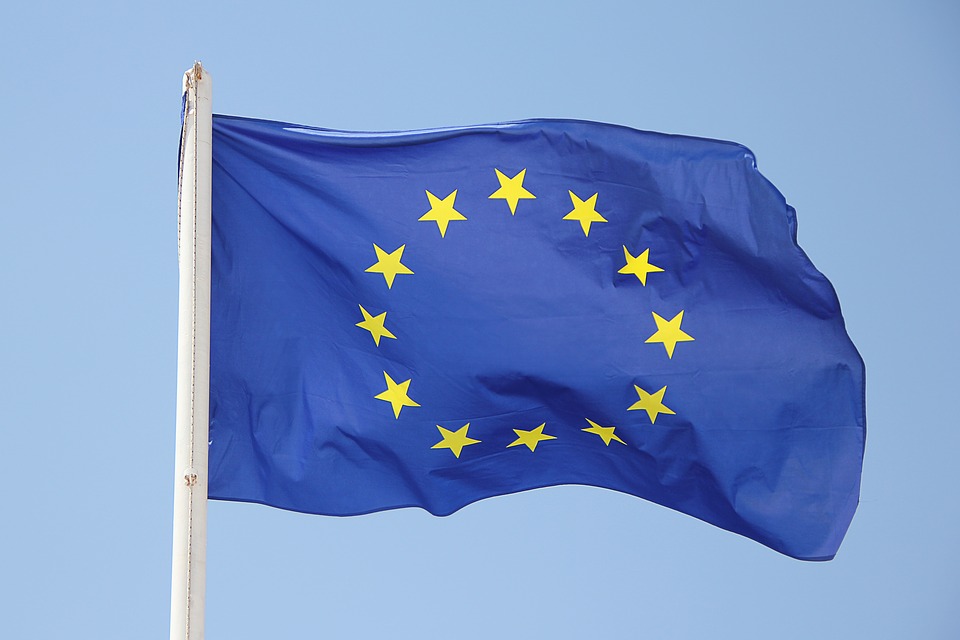An important event took place in Brussels: The European Sustainable Energy Week.
Against the backdrop of an ever-growing community, the 17th edition of the European Sustainable Energy Week (EUSEW) 2023 took place on 20-22 June. Under the theme of ‘Accelerating the clean energy transition – towards lower bills and greater skills’ over 2,000 onsite and 10,000 online participants came together to discuss next steps and taking action towards renewable energy. With 7 plenaries, 61 policy sessions, 35 Energy Fair stands, 128 Sustainable Energy Days, and the fourth edition of the European Youth Energy Day, EUSEW offered opportunities to deliver Europe’s clean energy transition.
Frans Timmermans leaves the European Commission
We did not find much breaking News related to Climate issues at European policy levels since our last update (May 2023). Except perhaps for the EU Commissioner Frans Timmermans leaving the Commission to become the leader of the left-green coalition, campaigning for the parliamentary elections in the Netherlands (22 November 2023). His proposed successor, Christian Democrat Wobke Hoekstra, at the Commission is rather disappointing for the Green Deal, since he did not show much commitment to the fight against climate change so far. It seems that this move was necessary to please the European People’s Party (EPP – Christian Democrats and Conservatives) and to secure their support for the re-election of the current Commission President.
With her State of the Union Address 2023, Ursula von der Leyen confirmed this interpretation. She insisted on the combination of growth and climate action, on “more dialogue and less polarisation” concerning the agricultural sector. In an interview on television, Manfred Weber (German Christian Democrats leader) was even more outspoken, saying that a less radical than Timmermans’ path was to be followed.
Sustainability transition as the new social issue?
Ever more European NGOs, research organizations and civil society movements are dealing with the consequences of the sustainability transition for the more vulnerable population groups. Study and research reports are published about housing, transport, employment in relation to the necessity of public and private measures to fight against climate warming.
Just a few examples:
The European Anti-Poverty Network (EAPN) is the largest European network of national, regional and local networks, involving anti-poverty NGOs and grassroot groups as well as European organizations, active in the fight against poverty and social exclusion. It was established in 1990. EAPN declares: “Millions of people in the EU are facing challenges with energy bills and the ongoing energy crisis has worsened the situation for the most vulnerable. With the latest review on energy poverty and the event on Energizing Equity, the topic is one of the major themes on EAPN’s agenda.” During the event “Energizing Equity: Uniting Voices to Confront Energy Poverty for a Just Transition” in July – organized by EAPN and hosted by the EESC – they took a closer look at energy poverty in the context of the green transition and the cost-of-living crisis. A just transition needs to emphasize social equity, workers’ rights, community engagement, gender equity, digital gaps and environmental sustainability by promoting an holistic approach to affordable energy access and transition. EAPN provides a platform for an open dialogue and knowledge exchange, focusing on the experiences and voices of individuals affected by energy poverty.
Eurofound, the European Foundation for the Improvement of Living and Working Conditions is the tripartite EU agency providing knowledge to assist in the development of better social, employment and work-related policies. Eurofound published recently two reports related to environmental and transition issues.
Green, clean and keen to converge? A convergence analysis of environmental quality of life in the EU
This report explores the dynamics of the environmental performance of the EU Member States and the extent to which the disparities in their performance have narrowed since the early 2000s. The report is a product of cooperation between Eurofound and the European Environment Agency, with the technical expertise in convergence of the former meeting the expertise in European environmental issues of the latter. It focuses on three levels of analysis: headline indicators, residential-level indicators and household-level indicators.
Supporting regions in the just transition: Role of social partners
This report investigates the involvement of social partners in the just transition to a climate-neutral economy, with a particular focus on the territorial transition plans. These plans aim to support the regions’ most negatively affected by the transition by assisting workers to retrain, relocate and find other jobs, and also support industries that need to phase out fossil fuels or other greenhouse gas-intensive activities. The role and input of the social partners in these plans and their views on the just transition are explored. An analysis of social dialogue practices and examples of collective agreements shows the range of topics covered by the social partners. The report also investigates the role of the energy crisis in the just transition and how it has contributed to delays in the implementation of territorial just transition plans in certain Member States.
FEANTSA is the European Federation of National Organizations Working with the Homeless. One of their central activity topics is Energy poverty. FEANTSA’s work on energy poverty concentrates on the risks and opportunities of the ecological transition for the most vulnerable people and more particularly the people experiencing homelessness. They refer to the European Green Deal in relation to housing. In the EU, buildings are estimated to be responsible for about 40% of energy consumption and 36% of energy-related greenhouse gas emissions. A “renovation wave” strategy was launched by the Commission in October 2020 to double the rate of building renovation over the next ten years, ensuring that buildings become more energy-efficient and that emissions are ultimately reduced. In this context, FEANTSA’s objective is to improve the fitfor55 package and direct the renovation wave towards social impact through a focus on housing conditions of low-income households.
